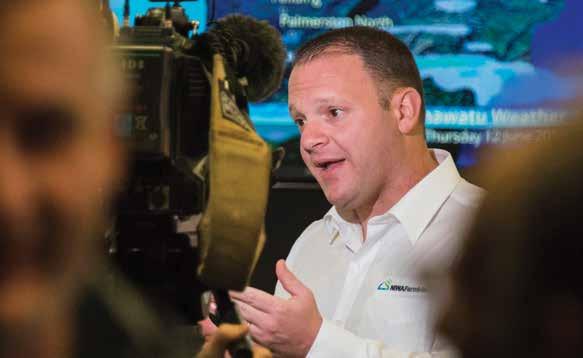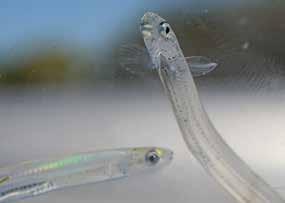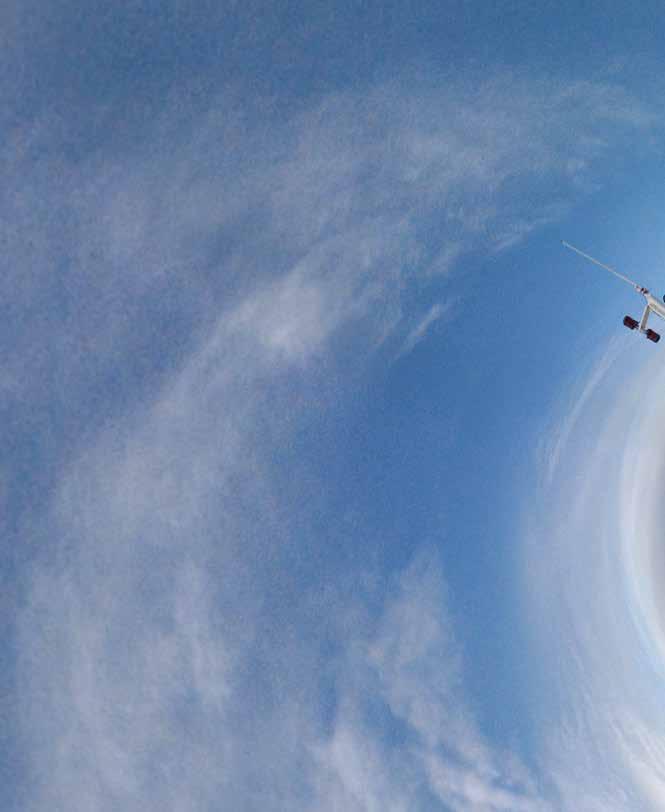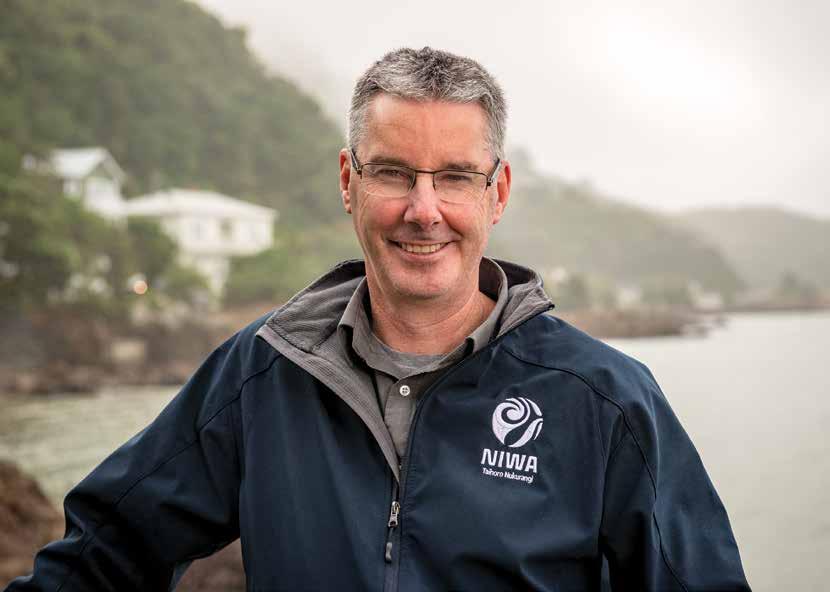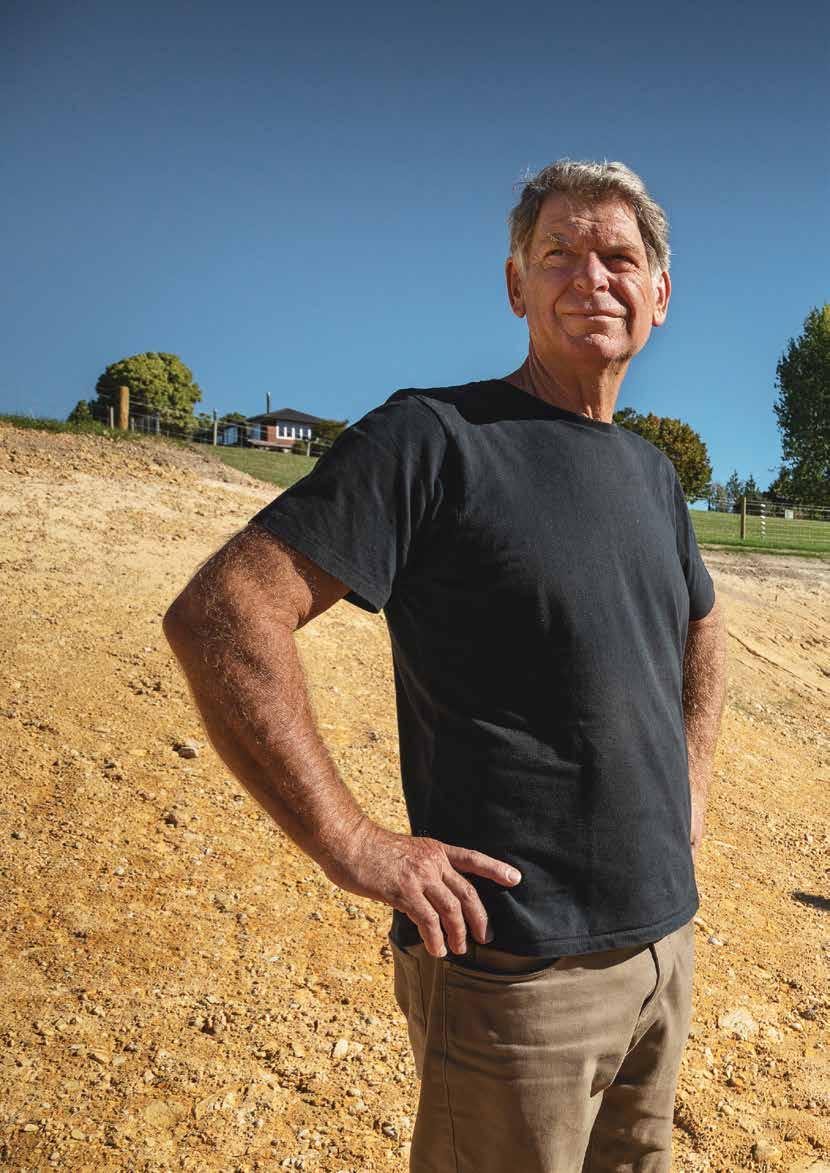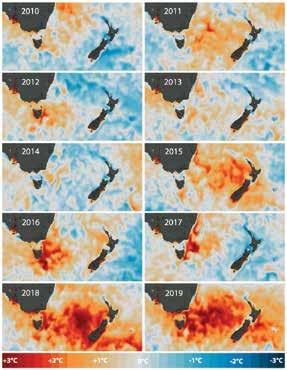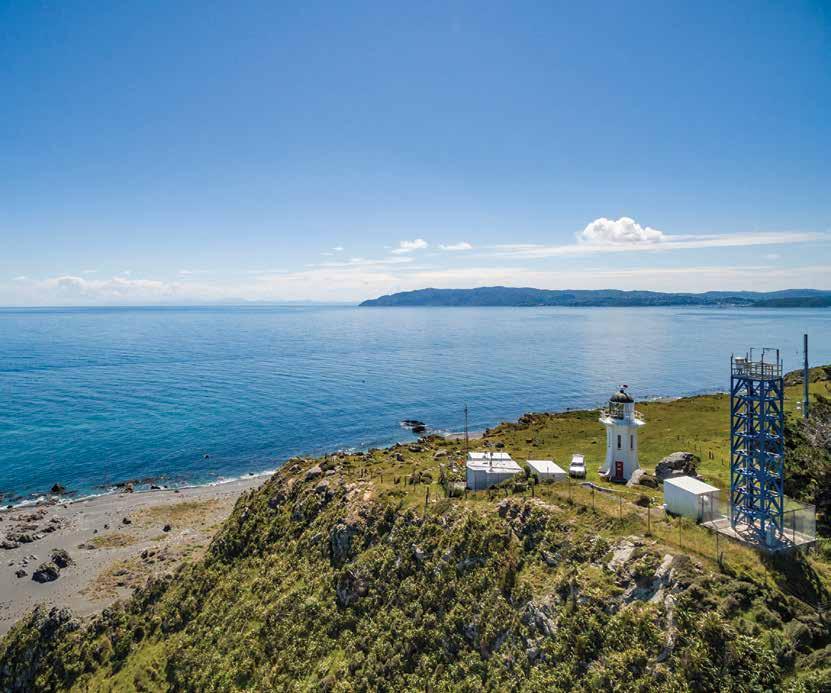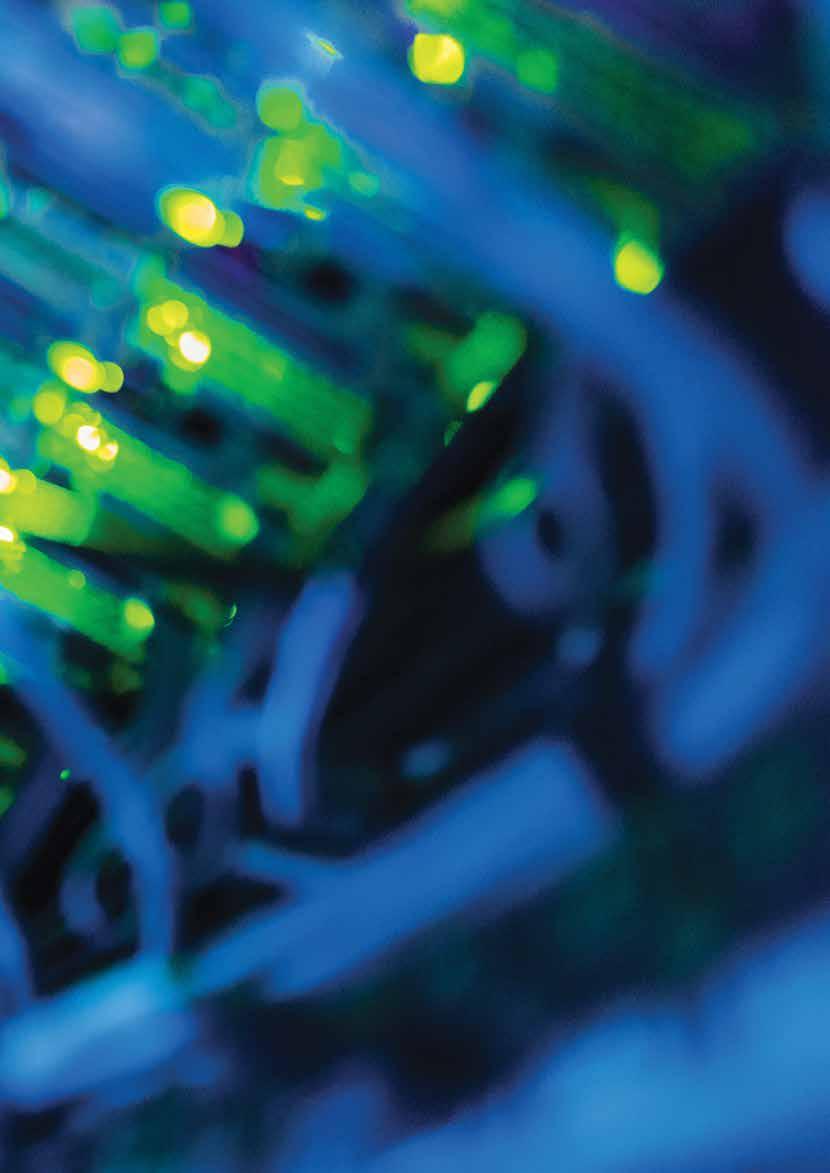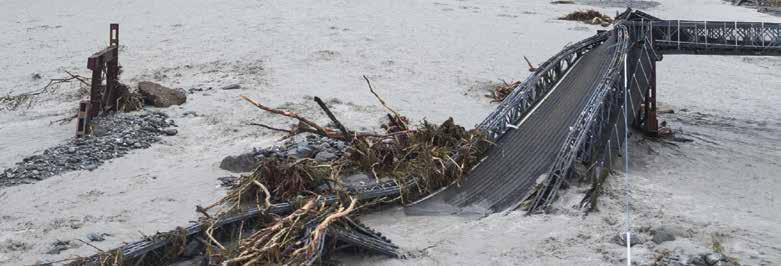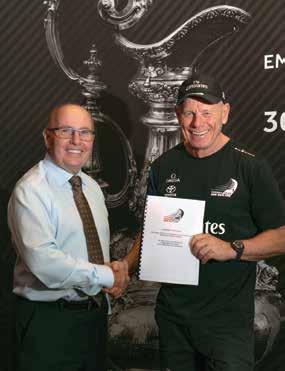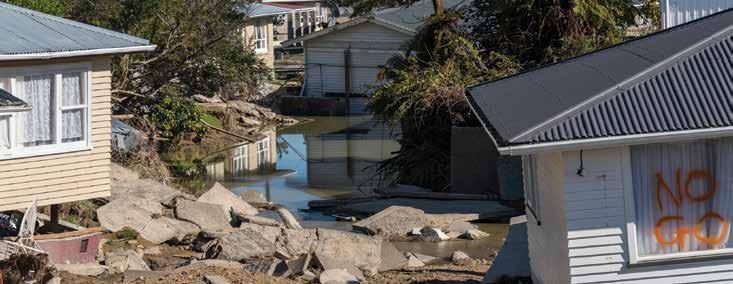IN BRIEF Leopard seal scat goes global In February this year, a USB stick was extracted from a leopard seal poo sample – known scientifically as scat. The scat had been stored in a NIWA freezer for almost a year. Scat can tell NIWA researchers what these endangered Antarctic predators are eating, how healthy they are and how long they may have been in New Zealand waters. Remarkably, the USB stick not only worked, but also contained detailed footage of sea lions playing in The Catlins. NIWA shared the footage online and in the media in a bid to track down the owner of the USB stick and find out more about the leopard seal’s movements.
NIWA CEO John Morgan, left, seals the deal with Emirates Team New Zealand head Grant Dalton. (Stuart Mackay)
The story went viral, with the video viewed over a million times on Twitter and the unusual discovery covered by media agencies worldwide. The owner of the USB stick was also quickly tracked down.
NIWA signs with Team NZ Emirates Team New Zealand has welcomed NIWA onboard to provide marine dynamics and high resolution forecasting expertise for the 36th defence of the America’s Cup in Auckland in 2021. Under an agreement signed last month, NIWA scientists and forecasters will work closely with the cup defence team over the next two years to provide technical information for the design of the new AC75 racing yacht as well as vital race-day forecasting services. NIWA’s Maui supercomputer – the largest in New Zealand – will help in providing high performance analysis of ocean currents and detailed course forecasts. Dave Allen
Chief Executive John Morgan says he is delighted to see NIWA’s scientific expertise joining Emirates Team New Zealand’s campaign to defend the Auld Mug.
Stuart Mackay
Bring in the robots
www.niwa.co.nz
NIWA scientists are pioneering new underwater drones to help inspections for introduced species in ports and harbours around New Zealand. Invasive species can easily attach themselves to foreign vessels and enter our waters undetected. NIWA is contracted by the Ministry for Primary Industries to check the country’s high-risk ports or harbours for unwanted marine guests. Murky, cramped conditions make some checks dangerous for divers, so NIWA is testing underwater drone cameras, called remote operated vehicles (ROVs), to bolster marine surveillance operations. Water & Atmosphere
June 2019
5

